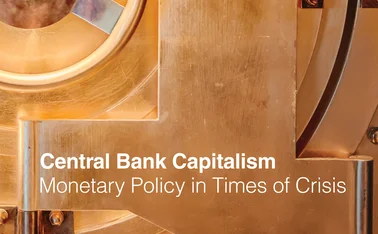
Banque de France paper finds ‘behavioural channel’ to QE
Repeat lab experiments imply people do not converge towards rational expectations

Part of the potency of quantitative easing could derive from a non-rational “behavioural channel”, according to lab experiments detailed in a recent Banque de France working paper.
The team of researchers notes that under the “textbook expectations hypothesis” of the yield curve, QE may have no impact if the expected path of the policy interest rate does not change. This implies QE would not affect output, employment or wages.
In an earlier experiment, the team identified the presence of a
Only users who have a paid subscription or are part of a corporate subscription are able to print or copy content.
To access these options, along with all other subscription benefits, please contact info@centralbanking.com or view our subscription options here: subscriptions.centralbanking.com/subscribe
You are currently unable to print this content. Please contact info@centralbanking.com to find out more.
You are currently unable to copy this content. Please contact info@centralbanking.com to find out more.
Copyright Infopro Digital Limited. All rights reserved.
As outlined in our terms and conditions, https://www.infopro-digital.com/terms-and-conditions/subscriptions/ (point 2.4), printing is limited to a single copy.
If you would like to purchase additional rights please email info@centralbanking.com test test test
Copyright Infopro Digital Limited. All rights reserved.
You may share this content using our article tools. As outlined in our terms and conditions, https://www.infopro-digital.com/terms-and-conditions/subscriptions/ (clause 2.4), an Authorised User may only make one copy of the materials for their own personal use. You must also comply with the restrictions in clause 2.5.
If you would like to purchase additional rights please email info@centralbanking.com test test test







